2018 Highlights of ASH in North America Speakers
Learn more about the expert speakers who participated in the 2019 Highlights of ASH in North America meetings.
Acute Myeloid Leukemia
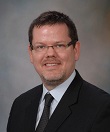
James Foran, MD, Mayo Clinic Florida
James Foran, MD, is a Consultant in the Division of Hematology/Oncology, Department of Internal Medicine, a Consultant in the Division of Epidemiology, Department of Health Sciences Research, and an Associate Professor of Oncology at the Mayo Clinic in Jacksonville, Florida. Dr. Foran earned his medical degree from the University of Manitoba Medical School, completed his residency in internal medicine at Beth Israel Hospital, and served as Chief Medical Resident at the Boston VA Medical Center. His interests include clinical trials in lymphoma, leukemia, and myelodysplastic syndromes, healthcare disparities in hematologic malignancy, medical education in malignant hematology, and epidemiology of lymphoma and leukemia.
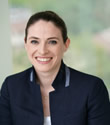
Elizabeth Griffiths, MD, Roswell Park Comprehensive Cancer Center
Elizabeth Griffiths, MD, is a Clinical Assistant Professor at the State University of New York (SUNY) at Buffalo and is a faculty member of the Roswell Park Comprehensive Cancer Center-SUNY Buffalo graduate training programs in the departments of Pharmacology and Therapeutics as well as Immunology. She treats patients with blood disorders, including acute myeloid and lymphoid leukemias as well as bone marrow failure syndromes such as aplastic anemia and myelodysplastic syndrome.
Dr. Griffiths’ research focuses on the mechanism of action of hypomethylating drugs (HMAs), specifically the contribution of the immune system to these responses. Her research examines the potential contribution of re-expressed Cancer-Germline antigens to the induction of anti-leukemic immune responses, as well as the direct impact on T-cell subsets in patients with myeloid malignancy following exposure to HMAs. Dr. Griffiths has authored or co-authored over 20 peer-reviewed publications.
Dr. Griffiths joined Roswell Park in 2010 following completion of a five-year medical oncology and hematology fellowship at the Sidney Kimmel Comprehensive Cancer Center at Johns Hopkins Hospital in Baltimore, MD. She had previously completed her internal medicine residency, also at Johns Hopkins, in 2005. Dr. Griffiths graduated with honors in 2002, earning her degree as Doctor of Medicine with Distinction from the University of North Carolina School of Medicine, Chapel Hill. She is board certified in hematology, oncology and internal medicine and is licensed in both New York and Maryland.
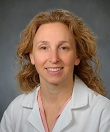
Alison Loren, MD, MS, University of Pennsylvania
Alison Loren, MD, MS, is the Director of Blood and Marrow Transplantation, Vice Chair of Faculty Development in the Department of Medicine, and an Associate Professor of Medicine at the Hospital of the University of Pennsylvania. Dr. Loren attained her medical degree at Washington University School of Medicine in St. Louis, and completed her residency and fellowship at the Hospital of the University of Pennsylvania. She specializes in hematology and medical oncology, with additional clinical expertise in blood cancer, bone marrow transplant, leukemia, and myeloproliferative neoplasms.
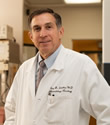
Gary J. Schiller, MD, University of California – Los Angeles
Gary J. Schiller, MD, is a Professor of Medicine at the University of California – Los Angeles School of Medicine and Immediate-Past Chairman of the Los Angeles Museum of the Holocaust. Dr. Schiller is a well-published clinical investigator in acute and chronic leukemias, multiple myeloma, and other hematologic malignancies, as well as in stem cell and bone marrow transplantation.
Dr. Schiller’s research projects include clinical studies of new drugs, therapies, and bone marrow/stem cell transplantation for patients with malignancies of the blood or bone marrow such as leukemia, multiple myeloma, and lymphoma. He has carried out studies of stem cell transplantation following high-dose chemotherapy and radiation for acute myelogenous leukemia, one of the most common types of leukemia in adults. He has also carried out work with purified stem cell transplantation for multiple myeloma.
Acute Lymphoblastic Leukemia
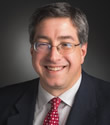
Daniel J. DeAngelo, MD, PhD, Dana-Farber Cancer Institute
Daniel J. DeAngelo, MD, PhD, is a Professor of Medicine at Harvard Medical School and the Chief of the Division of Leukemia at Dana-Farber Cancer Institute in Boston, Massachusetts. Dr. DeAngelo earned his MD and PhD in molecular genetics from Albert Einstein College of Medicine of Yeshiva University in New York. He completed his internship and residency at Massachusetts General Hospital in Boston and clinical fellowships in Medical Oncology and Hematology at the Dana-Farber Cancer Institute and Brigham and Women’s Hospital, both in Boston.
Dr. DeAngelo’s clinical research focuses on optimizing therapy for adult leukemias, myelodysplastic syndromes, and myeloproliferative disorders. He serves on the leukemia core committee for the Cancer and Leukemia Group B (CALGB) and is principal and co-investigator of several ongoing clinical protocols. Dr. DeAngelo has a particular interest in the treatment of young adults with leukemia, particularly acute lymphoblastic leukemia.
Dr. DeAngelo is actively involved in a number of professional societies, including the American Society of Hematology and the American Society of Clinical Oncology. In addition, he serves as a member of the NCCN CML and ALL guidelines committee. Dr. DeAngelo has authored or coauthored more than 200 original peer-reviewed manuscripts, review articles, and book chapters, and has presented his work nationally and internationally.
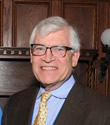
Richard A. Larson, MD, University of Chicago
Richard Larson, MD, is Professor of Medicine in Hematology/Oncology at the University of Chicago and director of the Hematologic Malignancies Clinical Research Program. His research interests include clinical trials in hematologic malignancies and stem cell transplantation, experimental therapeutics, the determinants of response to therapy in leukemia and myelodysplastic syndromes, and the etiology of therapy-related myeloid neoplasms.
Dr. Larson received his medical degree from the Stanford University School of Medicine in 1977, and completed his postdoctoral training in Internal Medicine, Hematology, and Oncology at the University of Chicago. He was a fellow of the Leukemia Society of America, and was the director of the Leukemia Clinical Research Program from 1983 to 2000, during which time he established the medical center's allogeneic blood and marrow transplant program. Dr. Larson is the past chair of the Leukemia Committee of the Cancer and Leukemia Group B (CALGB), is a current member of the European LeukemiaNet committees for AML and CML, and has served as a Councillor and Officer of the American Society of Hematology. He has represented ASH as a member of the National Cancer Policy Forum of the National Academy of Medicine and has served as a member of the Hematology Subspecialty Board of the American Board of Internal Medicine. Dr. Larson has served on the editorial boards of Blood, the Journal of Clinical Oncology, and Leukemia, and is an Editor-in-Chief for Hematology for UpToDate.
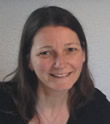
Michaela Liedtke, MD, Stanford University
Michaela Liedtke, MD, is an Associate Professor of Medicine at the Stanford University School of Medicine, where she also serves as the Medical Director of the Leukemia inpatient service, Co-Director of the Stanford Adolescent and Young Adult Cancer program, and Co-Director of the Stanford Amyloid Center. Dr. Liedtke received her medical degree from Hanover Medical School in Germany, and completed her residency in internal medicine at Albert Einstein College of Medicine and a fellowship in hematology and oncology at Memorial Sloan-Kettering Cancer Center and Stanford University. She specializes in research and treatment of multiple myeloma/amyloidosis and acute lymphoblastic leukemia, with particular interest in ALL in adolescents and young adults and CAR-T cell technology, and has contributed to numerous clinical and translational studies in her field. Dr. Liedtke is an active member of the American Society of Hematology and the American Society of Clinical Oncology, serves on the Leukemia committee for the Southwest Oncology Group, and is a member of the NCCN Multiple Myeloma Panel.
Myelodysplastic Syndromes

Rena Buckstein, MD, FRCPC, Sunnybrook Health Sciences Center
Rena Buckstein, MD, FRCPC, is an Associate Professor at the University of Toronto’s Department of Medicine and a clinician investigator at the Odette Cancer Centre within the Sunnybrook Health Sciences Centre. Dr. Buckstein’s research focuses on novel targeted biologic and immunologic therapies for hematologic malignancies as well as the impact of patient-related factors, such as frailty and disability, on quality of life and clinical outcomes independent of disease-related prognostic factors. She conducts health services research that studies the "real-life" experience of approved therapies in MDS and the cost/predictors of health care resource utilization. Dr. Buckstein is also committed to improving the transfusion experience of MDS patients and studying the impact of age-related clonal hematopoiesis (ARCH) on chemotherapy outcomes in older adults.
Dr. Buckstein completed her medical school training at Boston University and internal medicine/hematology specialty and subspecialty training in Toronto, followed by a fellowship in lymphoma and high dose therapy at Sunnybrook Hospital. She currently chairs the hematology site group at the Odette Cancer Center and its associated clinical trials program, founded and chairs a national registry for myelodysplastic syndromes (MDS-CAN). Dr. Buckstein is a member of the International MDS Foundation scientific advisory board and the Canadian Cancer Society hematology clinical trials sub-committee, and has chaired national clinical trials in lymphoma and MDS. She has authored over 100 publications and holds peer reviewed grants from CCSRI, CIHR and LLSC funding investigator-initiated research in MDS and lymphoma, and is the recent recipient of the LLSC/UFCW award for leukemia research in Canada.
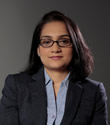
Pinkal Desai, MD, MPH, Weill Cornell Medical College
Pinkal Desai MD, MPH, is an Assistant Professor of Medicine at Weill Cornell Medical College and Assistant Attending Physician at the New York-Presbyterian Hospital, where she developed a clinical practice devoted to leukemia, myelodysplastic syndrome (MDS) and myeloproliferative neoplasms (MPN). Dr. Desai is actively involved in clinical and translational research protocols and projects in the areas of leukemia, MDS, and MPN. Her expertise is in the clinical care of patients with these diseases, and she serves as principal investigator and co-investigator of numerous investigator initiated and industry-sponsored clinical trials.
Dr. Desai’s research interests include hematological malignancies, particularly in the fields of myelodysplastic syndromes (MDS), acute myeloid leukemia (AML), and clonal hematopoiesis. She also has a background in epidemiology and a strong research interest in the epidemiology of hematological malignancies, particularly in preventative strategies in hematological malignancies, with numerous publications in the field of cancer epidemiology. Dr. Desai is published in Nature Medicine, Cancer, Cancer Medicine, Cancer Epidemiology, Biomarkers & Prevention, and International Journal of Molecular Epidemiology and Genetics. She is a member of American Society of Hematology (ASH) and American Society of Clinical Oncology (ASCO) and has served on the ASCO University Committee.
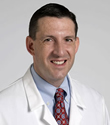
Mikkael A. Sekeres, MD, MS, Cleveland Clinic
Mikkael A. Sekeres, MD, MS, is Professor of Medicine, Director of the Leukemia Program, and Vice Chair for Clinical Research at the Cleveland Clinic Taussig Cancer Institute as well as Deputy Associate Director for Clinical Research of the Case Comprehensive Cancer Center in Ohio. His research focuses on patients with myelodysplastic syndrome and older adults with acute myeloid leukemia, and he has been the national and international primary study investigator on several phase I/II/III trials. Dr. Sekeres is the author or co-author of over 300 articles and 450 abstracts published in leading journals such as The New England Journal of Medicine, Blood, Journal of Clinical Oncology, Nature Genetics, Cancer Cell, Journal of the National Cancer Institute, Journal of Clinical Investigation, PLoS One, and Leukemia. He is also the co-author of six books; editor-in-chief of ASH Clinical News; on the editorial board of several journals; and a frequent essayist for The New York Times.
Dr. Sekeres earned a medical degree and a master’s degree in clinical epidemiology from the University of Pennsylvania School of Medicine. He completed his postgraduate training at Harvard University, finishing an internal medicine residency at Massachusetts General Hospital and a fellowship in hematology-oncology at the Dana-Farber Cancer Institute in Boston. Dr. Sekeres chaired the Oncologic Drugs Advisory Committee of the F.D.A and is chair of the medical advisory board of the Aplastic Anemia and Myelodysplastic Syndrome International Foundation, the MDS Research Fund of the Dresner Foundation, and the Cleveland Clinic Enterprise Pharmacy & Therapeutics Committee. An invited speaker at numerous meetings, grand rounds, and conferences, Dr. Sekeres is a member of the American Society of Clinical Oncology, the Southwest Oncology Group—Leukemia Committee, and the American Society of Hematology, where he is also on the Executive Committee
Malignant Lymphoma
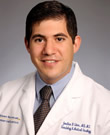
Jonathon B. Cohen, MD, MS, Emory University
Jonathon Cohen, MD, MS, is the director of the lymphoma clinical trials working group at the Winship Cancer Institute of Emory University, where he manages patients with lymphoma and CLL and leads numerous clinical trials. Dr. Cohen has been nationally recognized for his work in clinical investigation, and he mentors numerous trainees at Emory and nationally through his involvement with the ASH Clinical Research Training Institute and the Lymphoma Research Foundation Clinical Research Mentorship Program. He has given educational talks on lymphoma to patients and physicians nationally and internationally, including a discussion of novel therapy in lymphoma that he delivered at the 2018 ASH Annual Meeting.
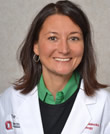
Kami J. Maddocks, MD, The Ohio State University
Kami Maddocks, MD, is an Associate Professor of clinical internal medicine within the Department of Hematology at The Ohio State University (OSU). She received her medical degree from the University of South Dakota School of Medicine, and completed her internal medicine residency at Mayo Clinic in Rochester, Minnesota, and her hematology/oncology fellowship at OSU. Since joining the faculty at OSU, Dr. Maddocks’ clinical and research focus has been on treating patients with both non-Hodgkin and Hodgkin lymphoma and the development of novel therapeutic strategies for the treatment of non-Hodgkin and Hodgkin lymphoma. In particular, her current research investigates the use of novel targeted oral inhibitors, therapeutic antibodies, and immunomodulatory therapy, with the potential to improve response rates and outcomes in these diseases while minimizing toxicities; characterize patterns and mechanisms of resistance to these therapies; and tailor therapies based on biomarkers of response.
Dr. Maddocks has received grant support from the American Society of Oncology, The Lymphoma Research Foundation, Pelotonia, and the National Cancer Institute. She is a member of the lymphoma subcommittee for the Alliance for Clinical Trials in Oncology, a large organization of lymphoma experts who design multi-center national trials and the National Comprehensive Cancer Center Guidelines on Hodgkin Lymphoma. In her free time, Dr. Maddocks enjoys efforts to raise funding for patient education, resources and research and has participated in several Pelotonias, Team in Training events for the LLS, Man/Woman of the Year for the LLS, and Light the Night for the LLS.

Peter Martin, MD, Weill Cornell Medicine
Peter Martin, MD, is an Associate Professor of Medicine and Chief of the Lymphoma Program in the Division of Hematology/Oncology at Weill Cornell Medical Center/The New York-Presbyterian Hospital. Dr. Martin specializes in caring for people with lymphoma. His research focuses on early phase clinical trials of new and promising therapies for people with lymphoma.
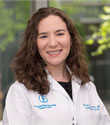
Alison Moskowitz, MD, Memorial Sloan Kettering Cancer Institute
Alison Moskowitz, MD, received her medical degree from Albert Einstein College of Medicine in the Bronx. She completed her internal medicine residency and internship at Columbia University Medical Center, followed by hematology/medical oncology fellowships at Memorial Sloan Kettering Cancer Institute and Weill Cornell Medical Center/The New York-Presbyterian Hospital in New York. Dr. Moskowitz is Clinical Director of the Lymphoma Inpatient Unit, and Assistant Attending, Lymphoma Service, at Memorial Sloan Kettering Cancer Center.
Dr. Moskowitz is board certified in internal medicine, medical oncology, and hematology. She holds professional membership in the American Medical Association, the American Society of Clinical Oncology, and the American Society of Hematology. Dr. Moskowitz has lectured and authored/co-authored peer-reviewed articles on autologous stem cell transplantation, relapsed/refractory Hodgkin lymphoma, and T-cell lymphoma. Her primary research focus is on evaluating novel treatments for Hodgkin lymphoma.
Chronic Lymphocytic Leukemia
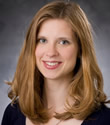
Danielle Brander, MD, Duke University
Danielle M. Brander, MD, is Assistant Professor of Medicine in the Division of Hematologic Malignancies & Cellular Therapy and the Duke Cancer Institute, as well as Director of the CLL & Lymphoma Clinical Research Program at Duke. She serves as site primary investigator for CLL-focused early-phase clinical trials, many in collaboration with other academic CLL research centers. Dr. Brander has participated nationally in both the American Society of Hematology Clinical Research Training Program and the Lymphoma Research Foundation Lymphoma Clinical Research Mentoring Program, and hopes to continue to bring novel treatment approaches for her patients. She is dedicated to participation in institutional and national educational initiatives through the Leukemia and Lymphoma Society, Lymphoma Research Foundation, and the CLL Society.
Dr. Brander also continues her work in the laboratory with other members of the Duke CLL Research Team to study biomarkers of CLL that could aid in predicting treatment related toxicity and resistance and serve as future therapeutic targets. She has been honored for her research and teaching including the Silber Award for Most Outstanding Research, the Elizabethtown College Apgar Distinguished Alumni Award, and the William Kane Hematology/Oncology Junior Faculty Teaching Award.
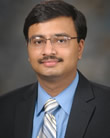
Nitin Jain, MD, University of Texas MD Anderson Cancer Center
Nitin Jain, MD, is an Associate Professor in the Department of Leukemia at The University of Texas MD Anderson Cancer Center in Houston. He earned his medical degree from the All India Institute of Medical Sciences in New Delhi, and then moved to the United States and completed his Internal Medicine residency training at the Medical College of Wisconsin. Dr. Jain completed a year of clinical fellowship in Leukemia at MD Anderson Cancer Center, followed by a Leukemia research fellowship at the Memorial Sloan-Kettering Cancer Center in New York. He then pursued fellowship in Hematology/Oncology at the University of Chicago, and was recruited as a faculty member in the Department of Leukemia at MD Anderson Cancer Center in 2012.
Dr. Jain treats patients with acute and chronic leukemia, focusing on patients with chronic lymphocytic leukemia (CLL) and acute lymphoblastic leukemia (ALL). His research interests focus on new drug development for patients with leukemia, especially CLL and ALL. Dr. Jain is Principal Investigator of several investigator-initiated phase I-II clinical trials, including combination targeted therapies (ibrutinib and venetoclax) in CLL, combination of ibrutinib and chemotherapy (iFCG regimen) in CLL, checkpoint inhibitors in CLL and Richter transformation, trial with JAK2 inhibitor ruxolitinib in Ph-like ALL, novel CD22 antibody drug conjugate in B-ALL, venetoclax + chemotherapy in B- and T-ALL, and off-the-self allogeneic CAR T in B-ALL.
Dr. Jain has published papers in prominent journals including Journal of Clinical Oncology, Blood, Clinical Cancer Research, Cancer, Leukemia Lymphoma, Leukemia Research, and others. He received High-Impact Clinical Research Support Award from MD Anderson Cancer Center in the year 2014 and 2016. Dr. Jain has served as a faculty on American Society of Hematology CRTI workshop for year 2017 and 2018. He is recipient of Sabin Family Foundation Award in 2018.
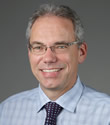
Adrian Wiestner, MD, National Institutes of Health
Adrian Wiestner, MD, earned a medical degree from the University of Basel Medical School in Switzerland in 1992, and a PhD in genetics in 1998. He completed a Hematology Fellowship at the National Heart, Lung and Blood Institute, at the National Institutes of Health in 2003, and was promoted to junior faculty in 2004 and to Senior Investigator with tenure in 2013. Dr. Wiestner’s main interests are pathogenesis and targeted therapy of chronic lymphocytic leukemia and mantle cell lymphoma. His goals are to define key pathogenic pathways in these diseases and translate novel agents and treatment strategies into clinical trials.
Myeloma and Plasma Cell Dyscrasia
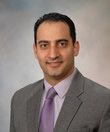
Sikander Ailawadhi, MD, Mayo Clinic
Sikander Ailawadhi, MD, is an Associate Professor with the Division of Hematology-Oncology at Mayo Clinic in Jacksonville. His career focus has been on treatment of plasma cell disorders, including multiple myeloma and Waldenström macroglobulinemia. His research has focused on understanding the epidemiology and pathophysiology of these disorders, evaluating the benefit of various therapeutic strategies in different populations based on racial-ethnic and socioeconomic diversity, as well as developing novel therapeutics through regional and national clinical trials.
Dr. Ailawadhi has conducted research comparing various epidemiological and disease-related characteristics in patients with multiple myeloma, Waldenström macroglobulinemia, and chronic lymphocytic leukemia in various ethnic subgroups of the population. Other research has explored molecular variations in multiple myeloma patients from different age groups and ethnic backgrounds, patient knowledge, compliance and psychosocial distress analyses in hematological malignancies, investigator-initiated and cooperative group clinical trials of novel therapeutic regimens in patients with these diagnoses, and secondary analyses of large databases to understand practice patterns and outcomes.

Cristina Gasparetto, MD, Duke University
Cristina Gasparetto, MD, is a Professor of Medicine at Duke University Medical Center in the Division of Cellular Therapy, where she is also leading the multiple myeloma program within the Division of Cellular Therapy and Hematologic Malignancies. She completed her Hematology and Oncology fellowship at Duke in 1999, where she remained as a faculty member in the Bone Marrow Transplantation Program. While Dr. Gasparetto initially began in the laboratory working on the development of a myeloma specific dendritic cell vaccine, currently she focuses on clinical research optimizing transplantation and new drug development for myeloma and amyloidosis.
Dr. Gasparetto is recognized internationally as an expert in myeloma and is a member of national and international committees of significance that direct the care of patients in this disease, including the International Myeloma Working Group and ALLIANCE, among others. Her focus on this illness has allowed her to build a nationally recognized clinical research program at Duke, where she serves as a leading investigator in multiple studies.
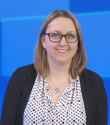
Brea Lipe, MD, University of Rochester Medical Center, Wilmot Cancer Institute
Brea Lipe, MD, is an Associate Professor with the University of Rochester Department of Medicine and the clinical director of the Wilmot Cancer Institute’s multiple myeloma program. Dr. Lipe has a strong interest in clinical research, offering her patients a variety of clinical trial options and treatments based on the most recent data. She received her medical degree from Albany Medical College and completed a residency and fellowship at Dartmouth-Hitchcock Medical Center.
Myeloproliferative Neoplasms Including Chronic Myeloid Leukemia
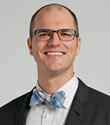
Aaron Gerds, MD, MS, Cleveland Clinic
Aaron Gerds, MD, MS, is an Assistant Professor in Medicine in Hematology and Medical Oncology at the Cleveland Clinic's Taussig Cancer Institute, where he serves as the principle investigator for a number of clinical trials for the treatment of MPNs and MDS, focused on developing novel therapies for these patients. Dr. Gerds completed his undergraduate degree with honors in biology and chemistry at Hope College in Holland, Michigan. He then obtained his MD from Loyola University Chicago Stritch School of Medicine. Dr. Gerds stayed at Loyola University Hospital for his Internal Medicine residency training, where he also served as chief resident, working under the mentorship of Dr. Patrick Stiff. This experience led him to pursue a master’s degree in clinical research methods and epidemiology during residency. Dr. Gerds then completed his hematology/oncology fellowship at the University of Washington, Fred Hutchinson Cancer Research Center. Under the mentorship of Drs. Joachim Deeg and Bart Scott, Dr. Gerds subspecialized in treating patients with myeloproliferative neoplasms (MPNs) such as polycythemia vera (PV), essential thrombocythemia (ET), myelofibrosis (MF), as well as other myeloid disorders. During his fellowship, he was awarded the ASBMT’s New Investigator Award.
Dr. Gerds is also an active member of the American Society of Hematology, participating in both the Advocacy Leadership Institute and Clinical Research Training Institute, as well as serving as Chair of the Committee on Communications, as a member of the Test Materials Development Committee, former Editor of the ASH News Daily, and Associate Editor of the 7th Edition of ASH-SAP. He is also the institution PI for the Southwest Oncology Group (SWOG), serves as co-PI for the Case Comprehensive Cancer Center’s LAPS grant, and is part of the leadership on several national clinical trials.

John Mascarenhas, MD, Icahn School of Medicine at Mount Sinai, Tisch Cancer Institute
John Mascarenhas, MD, is an Associate Professor of Medicine at the Icahn School of Medicine at Mount Sinai (ISMMS) and a member of the Tisch Cancer Institute in New York City. Dr. Mascarenhas is the Director of the Adult Leukemia Program and Leader of Clinical Research within the Myeloproliferative Disorders Program at Mount Sinai. As a clinical investigator in malignant hematology with a focus in translational research involving MPNs, he is primarily responsible for the clinical trials portion of the Myeloproliferative Disorders Program at ISMMS.
Dr. Mascarenhas is also the Principal Investigator (PI) of the clinical trials project within the National Cancer Institute sponsored Myeloproliferative Disorder Research Consortium (MPD-RC). He has served as PI or Study Chair of multiple investigator-initiated and industry-sponsored early and late phase clinical trials evaluating innovative approaches to the treatment of MPNs. Additionally, Dr. Mascarenhas holds multiple administrative roles at Mount Sinai, including Chair of the Leukemia Disease Management Team, Co-chair of the Hematologic Malignancy Disease Focus Group, and full member of the Tisch Cancer Institute Protocol and Review Monitoring Committee.
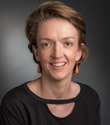
Ann Mullally, MD, Brigham and Women's Hospital, Dana-Farber Cancer Institute, Harvard Medical School
Ann Mullally, MD, is an Assistant Professor of Medicine at Harvard Medical School and a physician-scientist at the Dana-Farber Cancer Institute and Brigham and Women’s Hospital. Her laboratory studies the genetics, biology and therapy of myeloproliferative neoplasms (MPN) using MPN patient samples, mouse models and multiple different in vitro model systems. Dr. Mullally’s MPN research interests include the biology of mutant calreticulin (CALR) in MPN, myelofibrotic transformation, JAK2V617F MPN stem cells, and improving the clonal selectivity of JAK2 inhibitors. The overarching goal of the research in her laboratory is to advance the understanding of the biology of MPN and to translate this into improved treatment options for patients dealing with these diseases.
ITP/TTP and AHUS
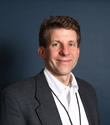
Spero Cataland, MD, The Ohio State University
Spero Cataland, MD, is a Professor of Internal Medicine in the Division of Hematology at the Wexner Medical Center at The Ohio State University, where he is co-director of the Benign Hematology Program. Dr. Cataland received his medical degree from The Ohio State University College of Medicine and completed his residency at The Ohio State University Hospital, after which he went on to hold a fellowship in hematology/oncology at the University of Chicago Medical Center. After completing his training in hematology, Dr. Cataland returned to The Ohio State University, where he presently remains on the faculty.
Dr. Cataland's clinical and research interests include TTP and atypical haemolytic uremic syndrome with an emphasis on acquired TTP. He serves as the director of the Biomarker Reference Laboratory at Ohio State University, which performs correlative laboratory studies for ongoing research projects and also serves as a reference lab for several ongoing clinical trials. Dr. Cataland has a long-standing interest in novel therapeutic approaches to acquired TTP as well as ongoing research emphasis to better understand the development of long-term complications in patients with a prior history of TTP and the mechanisms for their development.
Dr. Cataland has also worked to establish the United States Thrombotic Microangiopathy Clinical Consortium, an organization of 15 academic medical centers across the United States that was created for the purposes of conducting collaborative research in TTP and atypical haemolytic uremic syndrome.
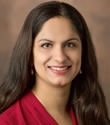
Shruti Chaturvedi, MBB, MS, Johns Hopkins University
Shruti Chaturvedi, MBB, MS, is an Assistant Professor of Medicine at the Johns Hopkins University School of Medicine. Dr. Chaturvedi received her medical degree from Maulana Azad Medical College at the University of Delhi in India. She then completed a residency in Internal Medicine at the Cleveland Clinic and a fellowship in Hematology and Oncology at Vanderbilt University, where she also obtained a Master of Science in Clinical Investigation.
Dr. Chaturvedi specializes in the care of adults with non-malignant hematologic disorders including thrombotic thrombocytopenic purpura, atypical hemolytic uremic syndrome, immune thrombocytopenia, autoimmune hemolytic anemia, and other disorders of thrombosis and hemostasis. Her clinical and translational research is focused on improving the care of patients with thrombotic microangiopathies with a focus on long term sequelae, the role of complement in severe sickle cell phenotypes such as rapidly progressive acute chest syndrome, and genetic factors contributing to thrombotic disorders.

Wendy Lim, MD, MSc, FRCPC, McMaster University
Wendy Lim, MD, MSc, FRCPC, is a Professor in the Department of Medicine, Division of Hematology and Thromboembolism at McMaster University in Hamilton, Canada. She attained her medical degree and completed her residency in Internal Medicine at the University of Toronto. Dr. Lim completed her subspecialty training in hematology, a Research and Clinical Fellowship in thromboembolism, and a master’s degree in Health Research Methodology at McMaster University.
Dr. Lim is currently the Head of Service, Hematology at St. Joseph’s Healthcare Hamilton. Her research interests include anticoagulant use in special patient populations, utilizing systematic review and meta-analysis methodology, and evidence review for guideline development.
Venous Thromboembolism/Anticoagulation and It's Reversal

Mark Crowther, MD, McMaster University
Mark Crowther, MD, is currently Chair of the Department of Medicine at McMaster University. Dr. Crowther’s research interests center on improving anticoagulant care. He is a member of the Royal Society of Canada and has been involved with many of the studies that have changed the way that anticoagulant care is provided, in addition to being involved in leading guideline efforts across the breadth of benign hematology.
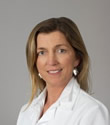
Casey L. O'Connell, MD, University of Southern California
Casey O’Connell, MD, is the Lawrence and Janice Kelly Chair in Hematology at Keck School of Medicine, University of Southern California (USC) in Los Angeles, California, where she is Associate Professor of Clinical Medicine in the Jane Anne Nohl Division of Hematology and Center for the Study of Blood Diseases. Dr. O’Connell is also Chair of the Keck School of Medicine Year II Hematology/Immunology Course and Medical Director of Anticoagulation Services at Los Angeles County + USC Medical Center in Los Angeles. She received her medical degree from George Washington University School of Medicine in Washington, DC, and completed an internship and residency in internal medicine at USC Department of Internal Medicine and a fellowship in the Division of Hematology and Oncology at USC Keck School of Medicine.
Dr. O’Connell is an Invited Member of the International Society on Thrombosis and Haemostasis and Co-chair of their Scientific and Standardization Subcommittee on Hemostasis and Malignancy. She is an Invited Member of the Education Committee of the American Society of Hematology. Dr. O’Connell is also a reviewer for Blood and has co-authored numerous chapters, as well as reviews, editorials, and articles published in peer-reviewed journals such as Journal of Clinical Oncology, Journal of Thrombosis and Haemostasis, AIDS, and The Lancet Oncology. Her major areas of research interest are cancer-related thrombosis, myeloproliferative neoplasm, and myelodysplastic syndrome.
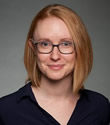
Leslie Skeith, MD, University of Calgary
Leslie Skeith, MD, is an Assistant Professor in the Division of Hematology, Department of Medicine at the University of Calgary, Canada. Dr. Skeith completed a subspecialty fellowship in Thrombosis Medicine at the University of Ottawa. Her clinical and research interests include thrombosis/thrombophilia and pregnancy.
Disorders of Homeostasis
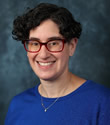
Rachel Bercovitz, MD, MS, Northwestern University
Rachel Bercovitz, MD, MS, is an Associate Professor of Pediatrics at the Northwestern University Feinberg School of Medicine. Dr. Bercovitz is board-certified in pediatrics, pediatric hematology/oncology, and transfusion medicine, and currently serves as the Medical Director of the Hemophilia Treatment Center at the Ann & Robert H. Lurie Children’s Hospital of Chicago’s Division of Pediatric Hematology, Oncology, and Stem Cell Transplant.
Dr. Bercovitz attended medical school at the University of Illinois and completed her pediatric training at the University of Washington. She completed fellowships in pediatric hematology/oncology as well as transfusion medicine at the University of Colorado Anschutz Medical Campus, where she was awarded the National Blood Foundation Research Scientist Triaging Award for her investigation of non-antibody-mediated transfusion-related acute lung injury.
As a member of the BloodCenter of Wisconsin faculty, Dr. Bercovitz focused her research primarily on assessing congenital and iatrogenic platelet dysfunction. She received the Mentored Career Award from the Hemostasis and Thrombosis Research Society for her project evaluating the use of both whole blood aggregometry and microfluidics to better understand the platelet dysfunction that occurs in children on cardiopulmonary bypass and how platelet transfusions work to improve hemostasis in this setting.
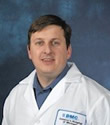
Michael Callaghan, MD, Children’s Hospital of Michigan, Wayne State University
Michael Callaghan, MD, is an Associate Professor of Pediatrics at Wayne State University and Children’s Hospital of Michigan and is a board-certified pediatric hematologist with a focus in benign hematology. Dr. Callaghan conducts basic, translational, and clinical research, and has published more than 50 articles in journals such as Haemophilia, Blood, Nature Genetics and The New England Journal of Medication. In his practice, Dr. Callaghan cares for more than 100 children and adults with hemophilia and has served as the medical director of Camp Bold Eagle hemophilia camp.

Ryan Zarychanski, MD, MSc, FRCPC, CancerCare Manitoba, University of Manitoba
Ryan Zarychanski, MD, MSc, FRCPC, is a hematologist, critical care physician, and clinician-scientist at CancerCare Manitoba and the University of Manitoba, where he currently holds salary and operating grant support from the Canadian Institutes of Health Research and receives research support as the Lyonel G. Irsaels Professor of Hematology.
Dr. Zarychanski’s research focuses on the hematologic aspects of critical illness. His major program of research is studying unfractionated heparin in septic shock, which has culminated in an international randomized controlled trial. Dr. Zaychanski’s other research programs evaluate the use of IVIG in septic shock, the prognostic value of white cell and platelet trajectories in septic shock, and the ability of tranexamic acid to reduce red cell transfusion in major non-cardiac surgery.
Sickle Cell Disease
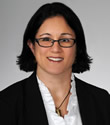
Julie Kanter, MD, Medical University of South Carolina
Julie Kanter, MD, is a lifespan hematologist specializing in sickle cell disease. She just recently moved to Alabama to become the director of the adult sickle cell disease program and co-director of the new comprehensive sickle cell research center. Prior to moving to Alabama, Dr. Kanter was an associate professor of Pediatrics at the Medical University of South Carolina where she developed the first all-ages, Lifespan Comprehensive Sickle Cell Center.
Dr. Kanter is very committed to improving outcomes in sickle cell disease and ensuring those outcomes reach the affected individuals. She works closely with national partners including the American Society of Hematology and the NIH on both advocacy and research. In 2016, Dr. Kanter and her team was awarded one of eight of the NHLBI sickle cell disease implementation grants to form a sickle cell implementation center. While in South Carolina, Dr. Kanter developed a statewide program (SC)2 for sickle cell disease that she is still running from afar. She plans to develop a similar model of access to care in Alabama. Dr. Kanter has authored and co-authored more than 50 articles, book chapters, and abstracts and hopes to train upcoming physicians and providers in sickle cell disease to expand the workforce for treating affected individuals.
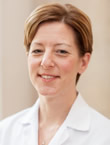
Molly Mandernach, MD, MPH, University of Florida
Molly W. Mandernach, MD, MPH, is an Assistant Professor at the University of Florida in Gainesville, Florida. She is board certified in Internal Medicine, Medical Oncology, and Hematology, and her primary clinical and research specialization is in non-malignant hematology with a specific focus on sickle cell disease.
Dr. Mandernach is the medical director of the Adult Sickle Cell Disease Program at the University of Florida. She is actively involved in the American Society of Hematology (ASH), serving on the ASH Committee on Practice and as a liaison Member to the Committee on Educational Affairs. Through ASH, she is currently contributing to the development of a series of web-based multimedia courses covering classical benign hematology topics designed for hematology and oncology fellows. Dr. Mandernach also serves as the co-chair of the Palliative Care Working Group and is a member of the Sickle Cell Disease Working Group on Health Care Professional Education. She is involved in medical education at the University of Florida and participated as a fellow in the inaugural class of the ASH Medical Educators Institute.
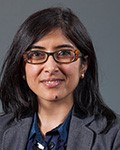
Deepa G. Manwani, MD, Children's Hospital at Montefiore
Deepa Manwani, MD, is the Director of the Hematology Program, Children’s Hospital at Montefiore, and Professor of Pediatrics at Albert Einstein College of Medicine in the Bronx. Her research interests focus on fetal hemoglobin activating agents, adhesive cellular interactions in vaso-occlusion in SCD, and contribution of neutrophils to SCD pathophysiology.
Dr. Manwani completed her residency at NSUH – Cornell University Medical College, and received her sub specialty training in pediatric hematology – oncology at Mount Sinai School of Medicine. She conducted basic science research in the field of globin gene regulation, under the mentorship of Dr. James Bieker, PhD, at Mount Sinai School of Medicine from 1997-2006. Dr. Manwani’s primary areas of research focused on exploring mechanisms of fetal hemoglobin reactivation, with the ultimate goal of designing novel therapies for sickle cell disease and thalassemia. She has also studied erythropoiesis and red cell-macrophage adhesive interactions in the erythroblast island.
Dr. Manwani completed the R01 funded Phase I Study of IVIG in treatment of SCD vaso-occlusive crises and is currently leading the R01 funded Phase II study, and has participated in NIH funded studies examining the modifiers of fetal hemoglobin expression. She has led quality improvement efforts that have led to significant reductions in readmission rates and length of stay for patients with SCD. Dr. Manwani is currently participating in studies aimed at increased adherence to hydroxyurea and improved transition to adult care. She is also collaborating with investigators at Case Western Reserve University on a NHLBI R01 funded study to standardize monitoring of cellular adhesion in SCD patients using a novel microfluidic assay. Dr. Manwani’s contributions have been recognized by the Sickle Cell Thalassemia Patient Network of New York in the form of the “Distinguished Service Award” in March 2015.
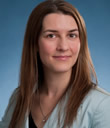
Madeleine Verhovsek, MD, McMaster University
Madeleine Verhovsek, MD, is an Associate Professor in the Division of Hematology and Thromboembolism at McMaster University, and the Director of the Adult Hemoglobinopathy Program at the McMaster Hemoglobinopathy Clinic. She completed Internal Medicine training and Hematology Residency at McMaster University, followed by training in sickle cell disease and thalassemia at Boston Medical Centre and Boston Children's Hospital. In addition to her clinical responsibilities, Dr. Verhovsek is a Consultant Laboratory Hematologist with the Red Cell Disorders Laboratory, Hamilton Regional Laboratory Medicine Program.
Dr. Verhovsek has a passion for teaching, research, clinical care and patient advocacy. She is on the Board of Directors of the Canadian Haemoglobinopathy Association. Dr. Verhovsek is the co-lead author of the Consensus Statement on the Care of Patients with Sickle Cell Disease in Canada, and an expert panel member for both the European RARE-Best Practices Sickle Cell Disease Guidelines and the American Society of Hematology Sickle Cell Disease Guidelines.
Red Cell Disorders: Hemolysis, Iron, Infection, and Pheresis
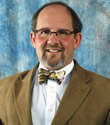
Marc J. Kahn, MD, MBA, MACP, Tulane University School of Medicine
Marc J. Kahn, MD, MBA, MACP is the Senior Associate Dean for Admissions and Student Affairs at Tulane University School of Medicine, where he is also the Peterman-Prosser Professor of Medicine in the section of Hematology/Medical Oncology. Dr. Kahn’s research interests include non-malignant hematology, financing academic medical centers, and medical education. He has been a member and Vice Chair of the ASH Committee on Educational Affairs and has written for the first five editions of ASH-SAP in addition to serving as Associate Editor and Editor for the 2nd and 3rd editions. Dr. Kahn has also worked on the ACP’s MKSAP for the past decade.
After completing his undergraduate studies, medical school, residency, Chief Medical Residency, and Hematology/Medical Oncology Fellowship at Penn, Dr. Kahn began his faculty career at Tulane in 1994. In 2010, he received his MBA from Tulane’s Freeman School of Business with concentrations in both International Business and Finance. In addition to his involvement with ASH, Dr. Kahn has held national leadership positions with the AAMC, where he served as National Chair of the Group on Student Affairs. He currently serves on the Board of Directors of the National Residency Matching Program and serves as a member of the American Board of Internal Medicine Hematology sub-specialty Board. Dr. Kahn was recently selected to be a Master in the American College of Physicians.
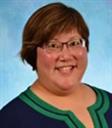
Alice D. Ma, MD, University of North Carolina at Chapel Hill
Alice D. Ma, MD, is a Professor of Medicine and the Fellowship Director in the Division of Hematology-Oncology at the University of North Carolina (UNC) School of Medicine in Chapel Hill, and is a member of the Harold R. Roberts Comprehensive Hemophilia Treatment Center. She currently holds the Medical Alumni Loyalty Fund Distinguished Teaching Professorship at UNC. Dr. Ma received her medical degree from the University of Michigan Medical School in Ann Arbor. She completed an internship and residency in medicine and a fellowship in Hematology-Oncology at the University of Pennsylvania Hospital in Philadelphia.
Dr. Ma is a dedicated physician, researcher, teacher, and leader in the field of hematology and coagulation. She has received numerous teaching awards and authored textbooks and scientific studies, including studies on acquired hemophilia. Dr. Ma’s clinical interests are in bleeding disorders, women’s health, and hematology education.
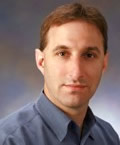
Marc Zumberg, MD, University of Florida
Marc Zumberg, MD, is a clinician-educator in the University of Florida's Division of Hematology/Oncology and the Department of Medicine. He serves as Section Chief for benign hematology and holds various medical directorships. Dr. Zumberg is chairman of the Shands Hospital Transfusion Committee, and is noted as a key clinical faculty member in the Internal Medicine residency training program and the Division of Hematology/Oncology Fellowship Program.
Transfusion Medicine
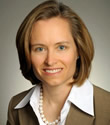
Jeannie Callum, MD, FRPC, Sunnybrook Research Institute
Jeannie L. Callum, MD, FRCPC, is a Transfusion Medicine Specialist and Hematologist at Sunnybrook Health Sciences Center in Toronto and Associate Professor of the Department of Laboratory Medicine and Pathobiology at the University of Toronto. She is the Director of Utilization for the Department of Laboratory Medicine and Molecular Diagnostics. Dr. Callum also serves as the sponsor lead for the Ontario Regional Blood Coordinating Network for Central Ontario. Her primary interests in transfusion medicine include error tracking and the management of the coagulopathy associated with traumatic injury and post cardiac surgery.
Dr. Callum earned her medical degree and completed a fellowship in internal medicine at the University of Toronto. In addition, she received transfusion medicine fellowship training with Canadian Blood Services. Dr. Callum was involved in the development of the U.S. Biovigilance Network and the Canadian Transfusion Error Surveillance System. She has been involved with numerous transfusion clinical trials including ABLE, PROPPR, FIIRST, TACS and FIBRES.
Dr. Callum has written extensively about issues in transfusion medicine, publishing more than 100 peer-reviewed articles and authoring numerous book chapters. She also was the lead author on the Provincial (Ontario) transfusion handbook titled “Bloody Easy,” now preparing its fourth edition. In addition, Dr. Callum is on the editorial board for the “Transfusion Medicine Reviews” and “Transfusion” journals.

Yulia Lin, MD, University of Toronto
Dr. Yulia Lin is the Division Head of Transfusion Medicine & Tissue Bank at Sunnybrook Health Sciences Centre and an Associate Professor in the Department of Laboratory Medicine and Pathobiology at the University of Toronto. She is a member of provincial and national working groups in transfusion medicine including the Ontario Transfusion Coordinators Network Steering Committee, the Ontario Transfusion Quality Improvement Plan Committee and the Canadian Standards Association Technical Committee on Blood and Blood Products.
In 2017, Dr. Lin was selected as an ASH Choosing Wisely Champion for her team’s quality improvement project on reducing inappropriate transfusions for patients with iron deficiency anemia in the Emergency Department. Her academic interests include quality improvement in patient blood management and physician education in transfusion medicine.

Zbigniew Szczepiorkowski, MD, PhD, Dartmouth College
Zbigniew M. Szczepiorkowski, MD, PhD, FCAP, is currently an Associate Professor of Pathology and Medicine at Geisel School of Medicine at Dartmouth as well as section chief of Laboratory Medicine, medical director of the Transfusion Medicine Service, medical director of the Center for Transfusion Medicine Research, and director of the Cellular Therapy Center at Dartmouth-Hitchcock Medical Center (DHMC) in Lebanon, New Hampshire. His current research includes studies of adaptive immunotherapy in cancer, the clinical use of apheresis and cellular therapy products.
Dr. Szczepiorkowski also directs the fellowship program in transfusion medicine at DHMC, which he established in 2007. He is an investigator at Norris Cotton Cancer Center and a consultant in pathology services at Massachusetts General Hospital in Boston as well as a visiting professor in Institute of Hematology and Transfusion Medicine, Warsaw, Poland. Dr. Szczepiorkowski has authored or co-authored more than 110 peer-reviewed publications; over 30 book chapters; and edited 3 books in the fields of laboratory medicine, cellular therapy, apheresis and transfusion medicine. He serves as section editor of Vox Sanguinis and associate editor of the Journal of Clinical Apheresis. He is currently a consultant for Fresenius Kabi and Grifols, Inc.
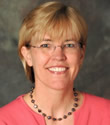
Lynne Uhl, MD, Beth Israel Deaconess Medical Center
Lynne Uhl, MD, is the Vice Chair of the Division of Laboratory and Transfusion Medicine at the Beth Israel Deaconess Medical Center in Boston and an Associate Professor of Pathology at Harvard Medical School. Her areas of interest include evidence-based clinical transfusion practice, hematopoietic stem cell transplant and immune-based cellular therapies, and therapeutic apheresis.
As Vice Chair of Laboratory and Transfusion Medicine, Dr. Uhl is responsible for physician oversight of clinical laboratory operations including ensuring operational compliance with regulatory organizations, oversight of quality assurance programs and quality initiatives, participation in clinical resource activities, and strategic planning within the department and hospital organization.
In addition to her administrative duties, Dr. Uhl devotes a considerable portion of her time to Harvard Medical School teaching activities and participation in national and international organizations within her area of expertise, including AABB, American Society of Hematology, College of American Pathologists, and the International Society for Blood Transfusion. She previously served on the AABB Board of directors, and was President of AABB in 2015.
Dr. Uhl is board-certified in anatomic and clinical pathology and has subspecialty certification in blood banking and transfusion medicine. She received her Bachelor of Science Degree in biology from Bucknell University in Lewisburg, Pennsylvania, her Master of Science in nutrition science from Pennsylvania State University in State College, Pennsylvania, and her medical degree from University of Cincinnati College of Medicine. Dr. Uhl completed residency training in pathology at Beth Israel Hospital and Harvard Medical School in Boston.